Runjie Wei
A robust single-pixel particle image velocimetry based on fully convolutional networks with cross-correlation embedded
Oct 31, 2021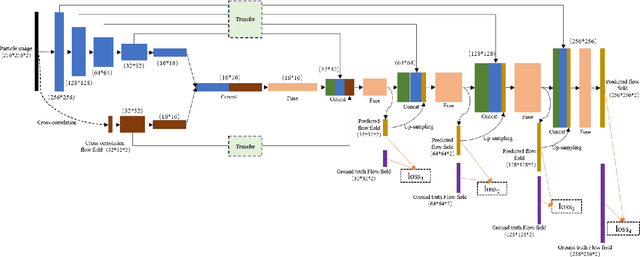
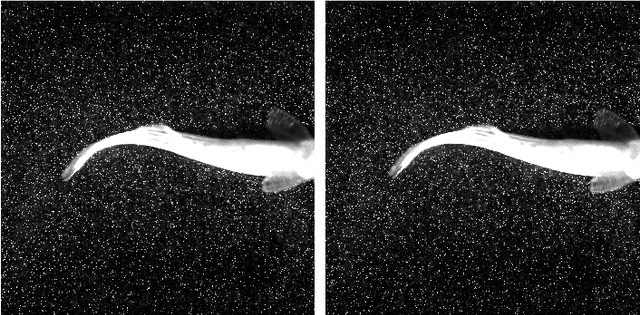
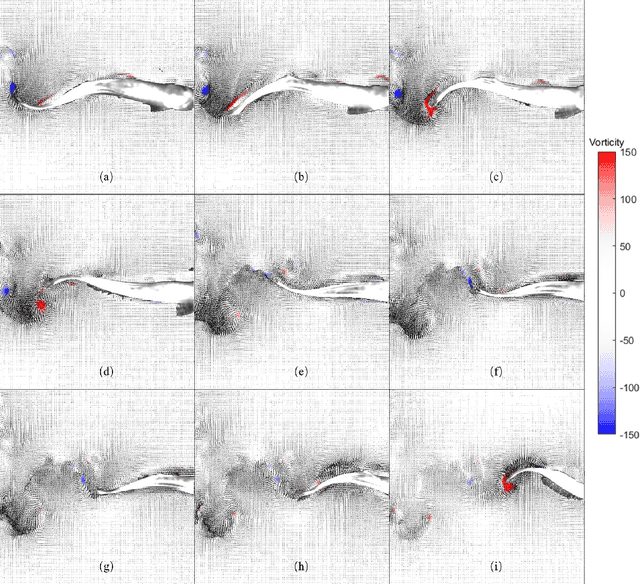

Abstract:Particle image velocimetry (PIV) is essential in experimental fluid dynamics. In the current work, we propose a new velocity field estimation paradigm, which achieves a synergetic combination of the deep learning method and the traditional cross-correlation method. Specifically, the deep learning method is used to optimize and correct a coarse velocity guess to achieve a super-resolution calculation. And the cross-correlation method provides the initial velocity field based on a coarse correlation with a large interrogation window. As a reference, the coarse velocity guess helps with improving the robustness of the proposed algorithm. This fully convolutional network with embedded cross-correlation is named as CC-FCN. CC-FCN has two types of input layers, one is for the particle images, and the other is for the initial velocity field calculated using cross-correlation with a coarse resolution. Firstly, two pyramidal modules extract features of particle images and initial velocity field respectively. Then the fusion module appropriately fuses these features. Finally, CC-FCN achieves the super-resolution calculation through a series of deconvolution layers to obtain the single-pixel velocity field. As the supervised learning strategy is considered, synthetic data sets including ground-truth fluid motions are generated to train the network parameters. Synthetic and real experimental PIV data sets are used to test the trained neural network in terms of accuracy, precision, spatial resolution and robustness. The test results show that these attributes of CC-FCN are further improved compared with those of other tested PIV algorithms. The proposed model could therefore provide competitive and robust estimations for PIV experiments.
Particle reconstruction of volumetric particle image velocimetry with strategy of machine learning
Sep 16, 2019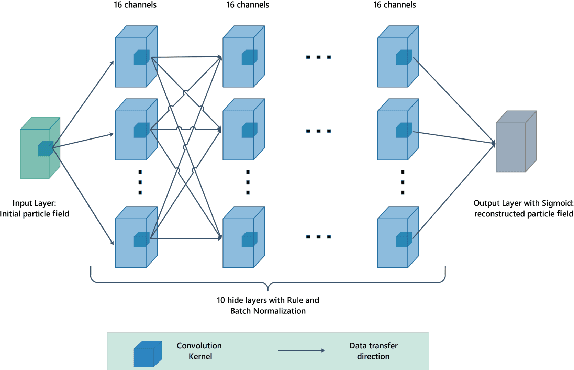
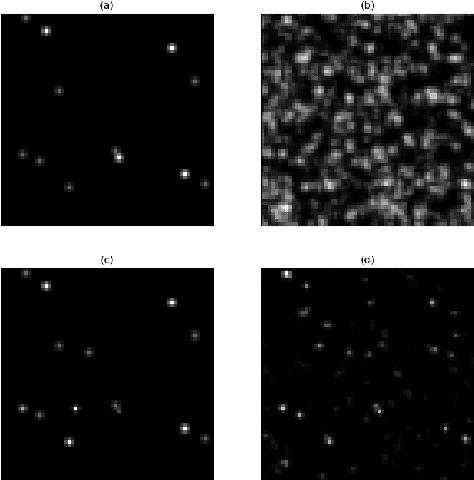
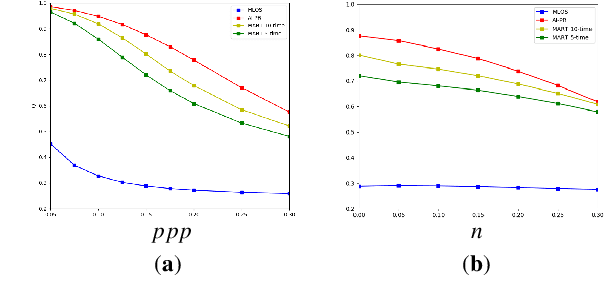
Abstract:Three-dimensional particle reconstruction with limited two-dimensional projects is an underdetermined inverse problem that the exact solution is often difficulty to be obtained. In general, approximate solutions can be obtained by optimization methods. In the current work, a practical particle reconstruction method based on convolutional neural network (CNN) is proposed. The proposed technique can refine the particle reconstruction from a very coarse initial guess of particle distribution from any traditional algebraic reconstruction technique (ART) based methods. Compared with available ART-based algorithms, the novel technique makes significant improvements in terms of reconstruction quality and at least an order of magnitude faster with dense particle concentration.
 Add to Chrome
Add to Chrome Add to Firefox
Add to Firefox Add to Edge
Add to Edge